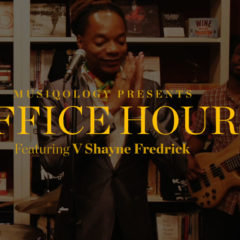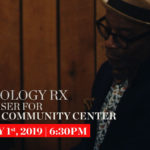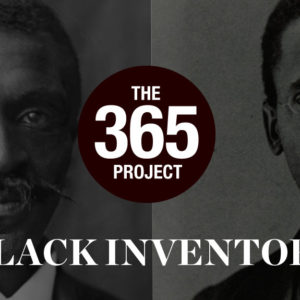“I can hear the even breathing that creates passages to dreams,” Claudia Rankine writes in Citizen, her renowned 2014 meditation on racism and its effect on the lives and existences of people of color. “And yes, I want to interrupt to tell him her us you me I don’t know how to end what doesn’t have an ending.”
This is one of many provocative meditations voiced in Citizen, which will kick off the free and open-to-the-public Speech/Acts reading group this Saturday, September 23, at Philadelphia’s Institute of Contemporary Art at 1PM. The reading group is an educational accompaniment to the institute’s latest exhibition (also titled Speech/Acts), which explores experimental black poetry and, in their words, “how the social and cultural constructs of language have shaped American black experiences.”
After the success of Freedom Principle and Endless Shout (covered capably by our own Gabriel Jermaine Vanlandingham-Dunn), we wanted to draw local readers’ attention to the exhibition and reading group—which is operating as a satellite outpost for Rankine’s The Racial Imaginary Institute, which recently published its first issue, on whiteness. “We begin here in order to make visible that which has been intentionally presented as inevitable so that we can move forward into more revelatory conversations about race,” the institute writes. “Our first project questions what can be made when we investigate, evade, beset and call out bloc-whiteness.”
This work—plus the works of other artists and the exhibition itself—will be up for discussion with this Saturday’s reading group, which will meet every other Saturday through December 2, discussing a variety of important writers including Anthony Reed (October 21), Christina Sharpe (November 4), and Fred Moten (November 18).
Citizen contains vignettes of experience, many of which are undoubtedly collected under that title because of black Americans’ still-ongoing fight for recognition of their full and complete humanity, communicated by citizenship rights. Likely at least borrowing from Achille Mbembe’s concept of necropolitics—“An unequal relationship…established along with the inequality of the power over life”—Rankine re-litigates microaggressions, popular cultural moments, and historical conditions that illustrate the ways citizenship is proffered unequally along racial lines.
There are not a lot of specific references to music in Citizen, but its subtitle, “An American Lyric” and her call to action to “pull the lyric back into its realities” suggest that the lyric form, too, is deserving of continued study and a grounding in media and multi-media discourse. “From the start, her work has troubled the distinction between what, in Citizen, she calls the ‘self self’ and the ‘historical self,’ challenging our sense of the lyric’s natural territory as the exclusively personal, outside the scope of politics,” Dan Chiasson writes in The New Yorker.
Either way, the existence of this reading group in partnership with ICA reflects a worthwhile endeavor that bridges various media and brings Rankine’s important work to a broader audience. We encourage you to check it out.

 Share On Facebook
Share On Facebook Tweet It
Tweet It








